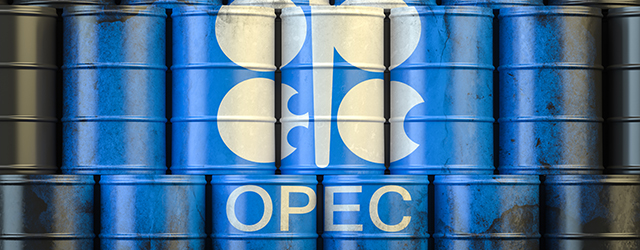
Nigeria Oil Production Fails to meet OPEC Quota
Nigeria oil production has failed to meet the 1.8 million barrels per day oil quota set by Organisation of Petroleum Exporting Countries (OPEC) in the month of February 2022.
OPEC released its Monthly Oil Market Report on Tuesday, which showed production at 1.258m/d. Nigeria missed its crude oil output target for January 2022, pumping 1.46 million barrels per day against a target of 1.683 million bpd approved by OPEC.
This was related after the release of The Nigerian National Petroleum Corporation (NNPC) report, now NNPC Limited. Records from the office of the Auditor-General for the Federation (AuGF) have shown that NNPCL has failed to account for about 107,239,436 barrels of crude oil lifted for domestic consumption in 2019,
This was contained in the Federal Government of Nigeria consolidated financial statements for the year ended December 31, 2019, submitted to the clerk to the National Assembly via a letter dated August 18, 2021, and signed by the Auditor General, Adolphus Aghughu..
According to the report, there were discrepancies between the amounts reported by the NNPC as transfer to the federations account and what was reported by the AuGF.
While the NNPC records showed that N1,272,606,864,000.00 was transferred by the corporation, the amount recorded by the Accountant General for the federation was N608,710,292,773.44, showing a discrepancy of N663,896,567,227.58.
It said: “Audit observed that 107,239,436.00 barrels of crude oil were lifted as domestic crude, while the allocation of crude oil to refineries for a billing date on January 9, to May 29, 2019, was 2,764,267.00 barrels valued at N55,891,009,960.63.”
Further in the report, “Information on the sale of un-utilised crude oil by refineries for 2019 was not provided, and information on crude oil allocations from May 30, to December 31, 2019, was not provided for scrutiny.”
In the report, the NNPC management is alleged to have failed to respond to the audit query concerning possible diversion of domestic crude, diversion of unutilized crude, and possible loss of the federation account revenue.
It as well revealed that suspected possible diversion of crude, diversion of un-utilized crude sale, and possible loss of federation account revenue, as management of the NNPC failed to respond to audit queries.
Also, there were discrepancies between the amounts reported by the NNPC as transfer to the federations account and what was reported by the AuGF.
With all the huge missing figures, mismanagement and unaccountability in oil production report, it has made Nigeria crude oil to fail massively in the oil market and the federal government is called on to look into this excesses in order not to plunge the economy into further recession.
